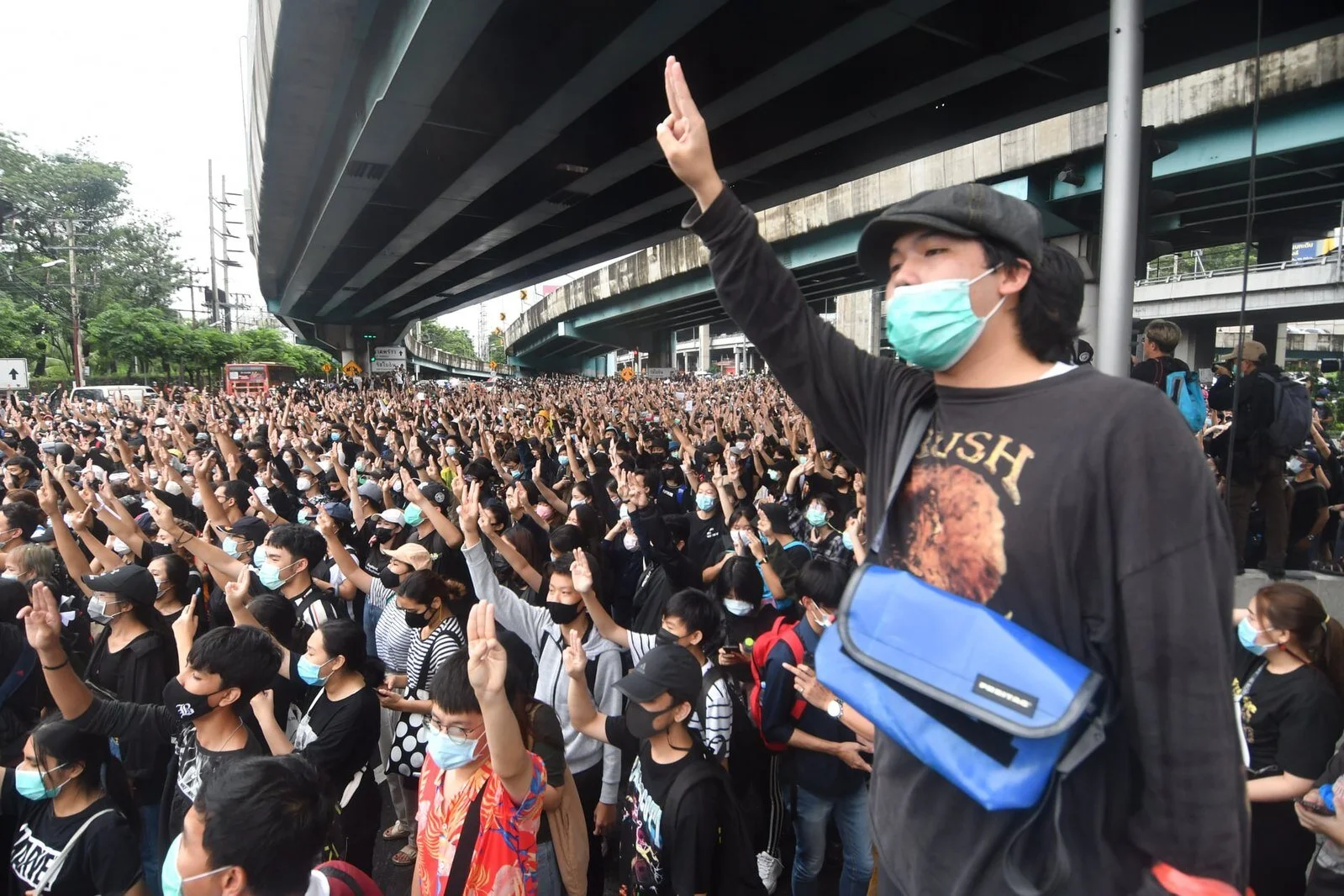Why the Most Challenging Demand is the Most Important for Thai Protestors
Since early 2020, tensions that have been brewing in Thailand for decades have finally broken. With waves of protests leading to dozens of injuries and arrests, the pro-democracy cause has been more strengthened than ever recently. Demanding a wide range of goals, for instance, the expansion of civil rights, abolition of the military-appointed Senate, and renewed democratic legislative elections, the Thai public is expressing utter rejection of the corrupt and semi-democratic condition of the country. Currently, under the rule of Prime Minister and ex-General Prayut Chan-o-cha, who took charge following a coup d’état in 2014, there is much that protestors are seeking to amend. However, despite their long list of demands, without the fulfillment of one often overlooked, their cause could amount to no real change: unless reformation of the royal family becomes the central priority within demonstrations, the undemocratic culture plaguing the nation will remain the status quo and the overall infrastructure of the nation will not be deeply influenced.
Thailand is a country familiar with corruption and power instability. With two coup d’états in the last 15 years alone, a string of resignations of government leaders, vast economic inequality, and crackdown and censorship of opposition, the country’s frailty when faced by political crises is clear. Currently, the country is operating under a Constitution newly adopted in 2017, which was voted in by a majority referendum, a vote that was marked by extreme suppression of any opposition campaigning; it strengthened military power in the country and concretised the constitutional powers of the Monarch, King Vajiralongkorn. The monarchy holds incredible power in Thailand, and it has become taboo to criticise the institution. Within the country’s infrastructure there remains a number of structures set up to maintain the power of the monarchy as an intrinsic force within government functions. Most conspicuously, the system of lèse-majesté, which forbids public insulting of monarchy, has led to anti-royalists facing up to 43 years for insulting Vajiralongkorn. Effectively, the government and its semi-democratic tendencies remain under the hand of the royals, and much of the older generations adhere to the historic and reverent tradition of admiring the royal institution.
However, unrest is festering within the youngest generation. Starting in universities in response to the government’s dissolution of the youth-led Future Forward Party in February 2020, the discontent has spread throughout the nation in the past year. The three recent series of protests have only been interrupted by the temporary lockdowns as Thailand attempts to handle the simultaneous crisis of COVID-19. Currently, on the third wave of unrest, young university students in urban areas are spearheading the campaign to change the fate of their nation.
The demands of protestors have evolved as 2020 dragged on and into 2021. Starting off with many unified by the desire for renewed focus on democracy and the installment of wide-ranging civil and political rights, but gravitated slowly away from criticising Chan-o-cha’s administration. As the movement gained more and more momentum, the target for some protestors shifted from solely the current administration to the royal family, putting the entire structure of the country on trial as citizens wielded the unprecedented objective of reforming the monarchy and its powers in conjunction with their previous demands. Their calls for reformation of the royal institution include a reversal of the King’s personal constitutional power and the stopping of the lèse-majesté policies; all of these seek to undo royal political power and have caused some strife amongst protestors, some of whom assert targeting the King is counterproductive.
However, if only the demands regarding the symptoms of political corruption are met, such as new elections or even the abolition of the military-appointed Senate, the systemic change the youngest generation is seeking will probably not happen. Without emphasising their demands for the monarchy as a crucial objective within the protests, they are bound to put a band-aid on a bullet hole. Of course, legislative elections and accountability of government are still a worthy goal, but to truly change the country, protests must focus on the power the monarchy still brandishes on the political stage.
Hope of endemic structural upheaval remains a far-off dream for the people, however. To overthrow the royal institution would require an entirely new Constitution, the process of which has been delayed by national courts. Skirmishes with police have led to dozens of arrests and deaths of protesters, but the movement remains strong even when faced with a government crackdown. Overall, the protestors are the underdogs: the risk of further suppression is high and the paradigm shift that some want to subvert the power of the royal family is an unlikely aspiration. But, if protestors remain with their sharp demands of undermining the monarchy’s role in society and government they have a shot at changing the core of their country.
Image courtesy of Khaosod English via Wikimedia, ©2020, some rights reserved.



